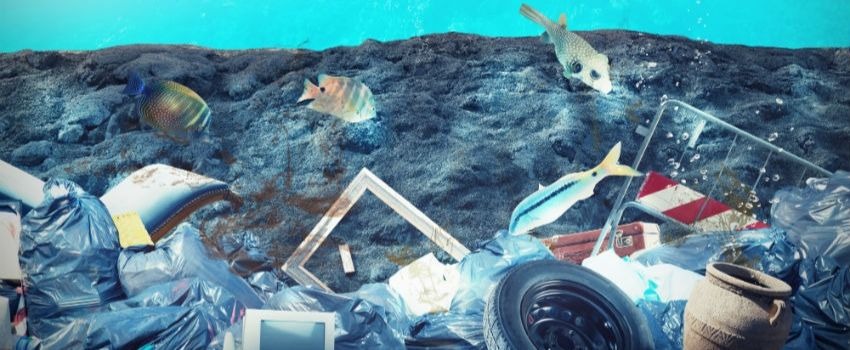
The cost of polluting the world’s oceans is in the billions of dollars every year in terms of damaged and lost resources according to the latest research. Plastic pollution negatively affects fisheries, recreational activities and global well being. It is also estimated that the benefit lost from the decline humans receive from the oceans is between 1-5 per cent and the cost of such benefits of the marine ecosystem could be up to an astonishing $2.5 trillion a year according to a study published in Marine Pollution Bulletin.
Millions of tons enter the ocean every year
It is thought that the waste generated by plastic costs as much as $33,000 per ton in reduced environmental value and about 8 million tons of plastic enter into the world’s oceans each year. Dr Nicola Beaumont who led the study says the study was the first to investigate the social and economic impact of plastics in the oceans. She adds the calculation was the first attempt at pricing plastic.
The true cost could be much higher
More research is required to refine the calculation but Dr Beaumont says the team is convinced the current figure is an underestimate of the real cost to global society. This is because they do not account for the direct and indirect impacts on the tourism, transport, fisheries health and human health. Plastic pollution is a global problem and can be found everywhere from the most populated coastlines on the planet to the most remote.
The creation of invasive species
Plastic negatively impacts all species from zooplankton all the way up to mammals and birds. Plastic continues to float for decades and can’t travel more than 3,000 kilometres from its point origin. The result is the creation of new habitats for bacteria and algae which risk the spread of invasive species and diseases. Experts say the research is the first attempt at showing the holistic impact of plastic pollution. There has been a massive increase in US plastic waste shipments to developing countries after China banned imports.
Better decisions
By putting a value on the huge tangible and intangible costs that are associated with marine plastic waste, it becomes possible to develop a strategy for devoting resources and attention to protecting the oceans do that future generations can enjoy them in the same way we have. Dr Beaumont says she hopes the study would push services to streamline themselves and address the problem of plastic pollution by making better informed decisions.
The cost of recycling is minimal
It costs just a few hundred dollars to recycle a ton of plastic compared to the thousands of dollars into the marine environment. Carbon is now traded in order to price it and cut the amount that is released into the atmosphere. This means it should be possible to do the same thing with plastic. The authors of the study hope that the results will highlight the reality of the problem that is plastic pollution in human terms.





